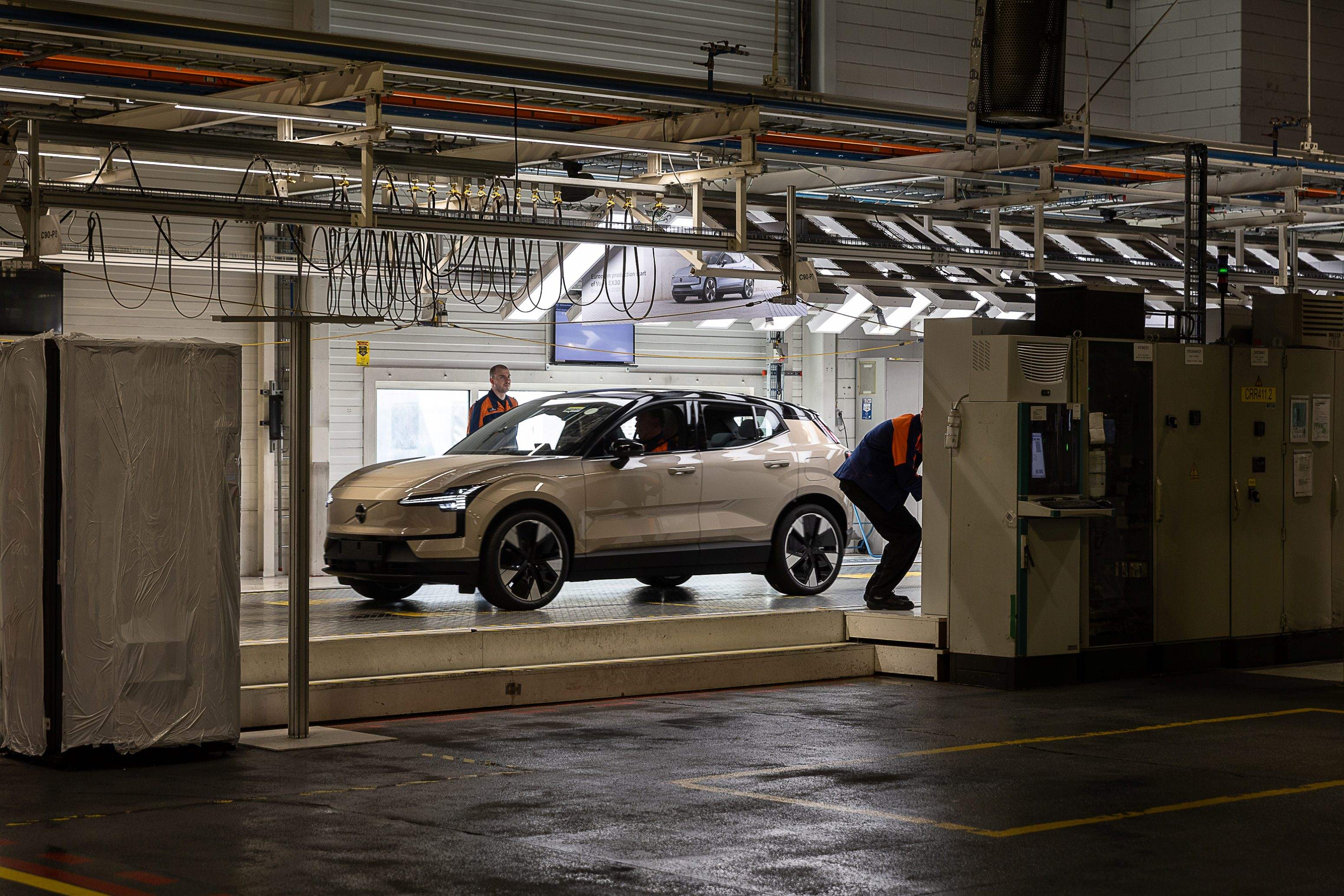First EX30 rolls off production line at Volvo’s Ghent site

The first EX30 vehicle rolled off the assembly line at the Volvo plant in Ghent on Friday. Prime minister Bart De Wever was among those to test drive it.
The new model – the fourth to be produced in Ghent – is vital for the future of Belgium’s last car factory, following the closure of Audi in Brussels. The EX30 was originally produced only in China. However, due to high European demand, which accounts for 80 per cent of global sales, and to avoid import duties, Volvo decided to produce the model in Belgium too.
Employing 6,500 people, Volvo is a key player in the Belgian economy. It realised sales of almost 8 billion euros in 2023. Volvo Car Gent produced 230,527 cars that year, including the EX40, EC40 and V60.
The allocation of a new model is vital in the sector: without a successor, work dries up. In Brussels, Audi was not assigned a new model and production of the Q8 e-tron ended.
The EX30, a compact SUV, targets urban drivers and young families, with prices starting at around 39,000 euros. It has the lowest carbon footprint of any Volvo model.
De Wever was among those present at the launch of the new model. "Volvo is not making this investment for five years but for decades," he said. "The batteries will be manufactured here, there is a lot of added value. This is proof that our motivated and efficient workers make the difference. If we support this politically, we have every reason to be optimistic."
Labour costs
The manufacturer’s decision to bring production to Belgium is remarkable, at a time when international tensions and trade tariffs – especially between Europe and China – are putting pressure on the sector. Moreover, the Belgian industry has long been known for its high labour costs.
Belgian companies need to compensate for that disadvantage with exceptional efficiency and technological edge. The new production line for the EX30 was started up in a record time of 18 months, an unprecedented feat within the group.

A former warehouse was converted into a state-of-the-art assembly line with 580 robots, halving the production time for a car. The total investment was more than 200 million euros, of which 3 million came from the Flemish government.
Besides the assembly of the EX30, production of essential parts such as the battery and the finishing of the doors will also be done in Ghent. This shortens the supply chain and reduces the vehicle’s carbon footprint.
The plant aims to produce the vehicle in a climate-neutral way, including through the use of biogas and electrified ovens in the paint shop.
#FlandersNewsService | Production of the first Volvo EX30 at the plant in Ghent, 25 April 2025 © BELGA PHOTO JAMES ARTHUR GEKIERE / BELGA VIDEO JONAS D'HOLLANDER
Related news

